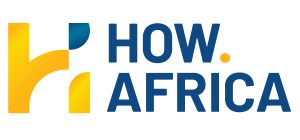Is Kenya Forest Service Under NPS?
In most countries, law enforcement resources are an integral part of the overall management of forest systems, and that is no different in Kenya:
In Kenya, officers from the Kenya Forest Service (KFS) generally enforce provisions of the Forest Conservation and Management Act (FCMA), 2016, in which it draws its mandate, alongside other applicable laws and regulations governing existing forests and forest resources in both public and private lands.
The KFS officers have stations in national forest lands, and they are involved in managing designated forest and woodland areas, overseeing activities ranging from planting and harvesting of trees and conducting patrols to notice and combat pests and diseases, illegal logging, and prevent forest fires while responding to calls as they arise.
But there is one thing which usually confuses many Kenyans: Knowing if the Kenya Forest Service is part of the National Police Service (NPS) or not and the answer is below;
Is KFS part of the National Police Service in Kenya?
No. Even though the Kenya Forest Service (KFS) are maintainers of law and order in the forests, they are not part of the National Police Service (NPS) or, relatively, the Kenya Police. KFS is a state corporation, while NPS is not.
If you look at its leadership structure, the Inspector General of Police is not its head. As a government body corporate, KFS is headed by a Board of Directors of which the Inspector General is just a member.
It is also not under the Ministry of State for Interior and Coordination of National Government but the Ministry of Environment, Climate Change and Forestry in its State Department for Forestry under a Principal Secretary.
What are the functions of the Kenya Forest Service (KFS)?
According to the Kenyan Environmental Laws, the functions of the Kenya Forest Service include;
* Conserving, protecting and managing all public forests
* Preparing and implementing management plans for all public forests and assisting in managing community and private forests in consultation with the relevant owners
* Registering and maintaining a register of all forest management plans prepared for public forests in the country
* Receiving and considering applications for licenses and permits for exploiting forest resources
* Establishing and implementing benefit-sharing arrangements for forest resources among Kenyan communities
* Assisting county governments in building capacity in forestry and forest management
* In consultation with relevant stakeholders, develop programmes for tourism in the forest lands
* Promoting forestry education and training
Who are the current heads of forests in Kenya?

As said, the Kenya Forest Service (KFS) is the state agency that manages national forests and grasslands in Kenya, and at its helm is a Board of Directors, which forms and sees the execution of policies aimed at improving the country’s forested lands.
The Directors of the KFS Board are led by a chairperson, a position currently occupied by Titus Kipkoech Kipkorir.
However, KFS itself has a senior management supervised by the highest-ranking officer in the Kenya Forest Service, which is the Chief Conservator.
The current Chief Conservator of Forests (CFF) in Kenya is Alexander Lemarkoko, who is serving as the CFF and Chief Executive Officer (CEO) of the Kenya Forest Service (KFS).
READ: The Difference Between Kenya Police and Administration Police































